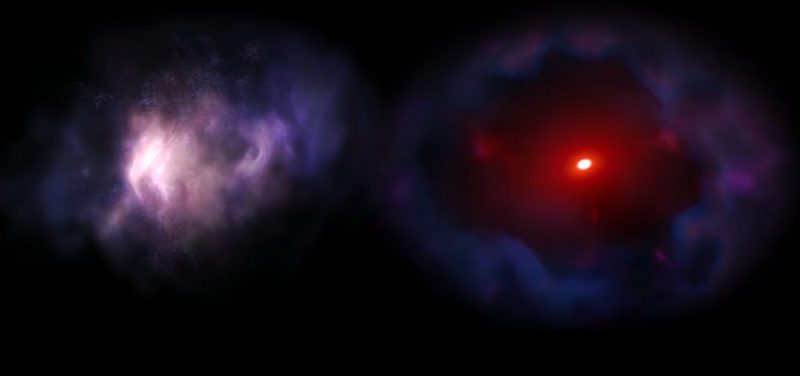
Astronomers recently spotted a “monster”, an inactive galaxy that’s young enough to still provide clues as why galaxies stop forming stars.
It’s the first discovery of its kind. Most 1.65 billion-year-old galaxies are continue to produce stars at that age, but not this newly recorded galaxy, called ZF-COSMOS-20115. It formed all of its stars in an extreme starburst event, stopping one billion years after the Big Bang, to become a “red and dead” galaxy.
ZF-COSMOS-20115 is small and dense since it formed rapidly. The red galaxy holds about 300 billion stars—five times more than the Milky Way, but it’s 12 times smaller in size.
Prior to this discovery, astronomers thought red galaxies like this were formed over three billion years, Phys.org reports.
“This discovery sets a new record for the earliest massive red galaxy. It is an incredibly rare find that poses a new challenge to galaxy evolution models to accommodate the existence of such galaxies much earlier in the Universe,” said Professor Glazebrook, Director of Swinburne’s Centre for Astrophysics and Supercomputing, who led the research team.
The findings were published in Nature.
—RealClearLife
This article was featured in the InsideHook newsletter. Sign up now.






















